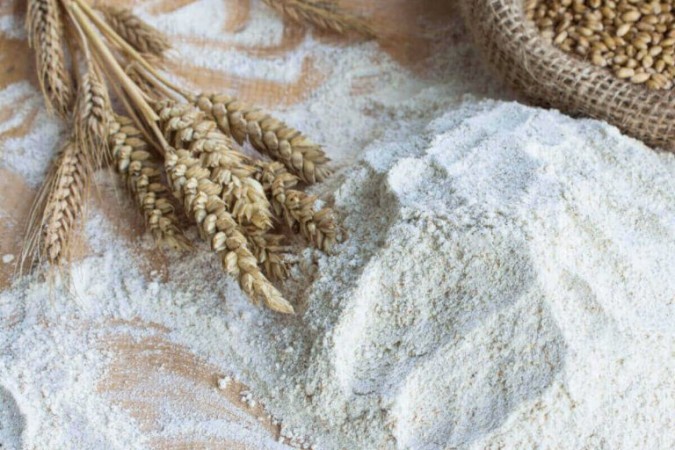
In today's fast-paced world, our diets often include processed and refined foods that might not be the best for our health. Refined flour, also known as maida, is a common ingredient found in many of these foods. This article will explore the effects of going a month without consuming refined flour and how it can positively impact your body.
Understanding Refined Flour (Maida)
What is refined flour?
Refined flour, commonly known as maida, is a finely ground flour that is obtained by processing wheat. During this process, the bran and germ are removed, leaving behind the endosperm. This results in a fine-textured flour that is often used in baking and cooking.
Common sources of refined flour in the diet
Refined flour is a staple ingredient in many processed foods such as bread, pasta, pastries, cakes, and cookies. It is also used as a thickening agent in soups, sauces, and gravies.
The Effects of Refined Flour on the Body
Rapid spikes in blood sugar
Consuming foods high in refined flour can lead to rapid spikes in blood sugar levels. This is because refined flour is quickly digested and absorbed, causing a sudden release of glucose into the bloodstream. Over time, this can contribute to insulin resistance and an increased risk of type 2 diabetes.
Weight gain and obesity
Refined flour-based products are often calorie-dense and lack essential nutrients and fiber. This can lead to overconsumption and contribute to weight gain and obesity.
Digestive issues
The low fiber content in refined flour can lead to digestive issues such as constipation and bloating. Additionally, some individuals may be sensitive to gluten, a protein found in wheat, which can further exacerbate digestive problems.
Increased risk of chronic diseases
A diet high in refined flour has been linked to an increased risk of chronic diseases such as heart disease, stroke, and certain types of cancer. This is due to the negative impact on blood sugar regulation and inflammation.
Benefits of Eliminating Refined Flour for a Month
Stabilized blood sugar levels
Cutting out refined flour can lead to more stable blood sugar levels, reducing the risk of insulin resistance and type 2 diabetes.
Weight loss and improved metabolism
A flour-free diet can contribute to weight loss and improved metabolism. Whole grains and unprocessed foods are more filling and can help control cravings and overeating.
Better digestive health
Eliminating refined flour can alleviate digestive issues and promote a healthier gut environment. The increased fiber intake from whole grains can support regular bowel movements and reduce bloating.
Reduced risk of chronic diseases
By avoiding refined flour, you can lower your risk of chronic diseases and improve overall health. Whole grains contain valuable nutrients and antioxidants that protect against inflammation and oxidative stress.
The First Week Without Refined Flour
Sugar cravings and withdrawal symptoms
In the initial days of cutting out refined flour, you may experience sugar cravings and mild withdrawal symptoms. This is a common reaction as your body adjusts to the absence of this highly processed ingredient.
Energy fluctuations
During the first week, you may notice fluctuations in your energy levels as your body adapts to the change in diet. Some individuals may feel more fatigued initially, while others may experience increased vitality.
Initial changes in digestion
As your digestive system adjusts, you may observe changes such as reduced bloating and improved regularity. These changes are indicative of your body's positive response to the dietary shift.
Weeks 2 and 3: Adapting to a Flour-Free Diet
Improved energy levels
As your body becomes accustomed to a diet without refined flour, you'll likely experience more consistent energy levels throughout the day. This can lead to increased productivity and a better overall mood.
Noticeable changes in skin health
Many individuals report improvements in skin health after eliminating refined flour. Clearer skin, reduced acne, and a healthy glow are commonly observed benefits.
Enhanced mental clarity
A flour-free diet may contribute to enhanced mental clarity and focus. Stable blood sugar levels and a nutrient-rich diet can support brain health and cognitive function.
The Fourth Week: Transformations and Results
Sustained weight loss
By the fourth week, you may notice sustained weight loss, especially if your diet has been well-balanced and rich in whole foods. This can be motivating and encourage you to maintain your new eating habits.
Balanced mood and reduced stress
The absence of refined flour can have a positive impact on mood regulation. Stable blood sugar levels and nutrient intake play a role in reducing stress and promoting emotional well-being.
Overall feeling of well-being
Going a month without refined flour can lead to an overall sense of well-being. Many people report feeling lighter, more energetic, and healthier.
5 Foods That Are Bad for Your Skin